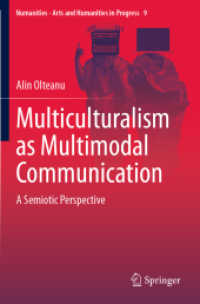Full Description
A pioneering work which delves into and reveals the links between music, moral instruction and social reform.
This book discusses the role of music in programmes of personal improvement and social reform in nineteenth-century Britain. The pursuit of morality through music was designed not just to improve personal and communal character but to affect social change and transformation. The book examines the musical education of children, women and men through a variety of literature published for various educational settings including mechanics' institutes. It also considers the role of music in narratives of social programs and community-building projects that sought to promote utility, well-being and freedom from the strictures of Christianity as the dominant moral and cultural force.
The first book to connect the threads between music, moral instruction and social reform across the educational life cycle in nineteenth-century Britain, it shows how these threads are found in unlikely places, such as games, manners books, economics treatises and short stories. It deftly illustrates the links between everyday life, popular culture and discourses of morality and social reform of the period.
Contents
List of Illustrations
Acknowledgements
Introduction
Part 1 Morality
1. Elementary Instruction
2. Manners and Etiquette
3. Mechanics' Institutes
Part 2 Social Reform
4. Political Economy - William Stanley Jevons
5. Philanthropy - Hannah More and Octavia Hill
6. Utopia - Auguste Comte and Malcolm Quin
Afterword
Bibliography
Index








